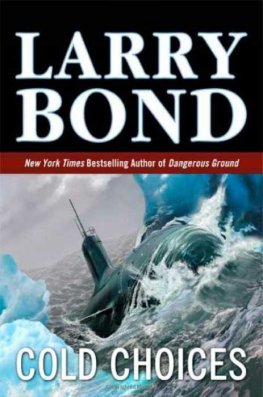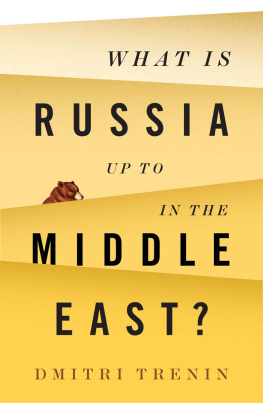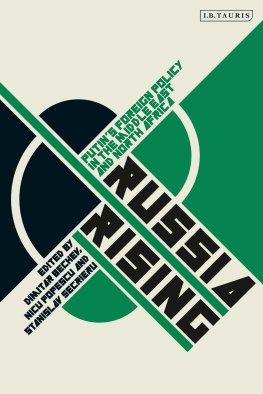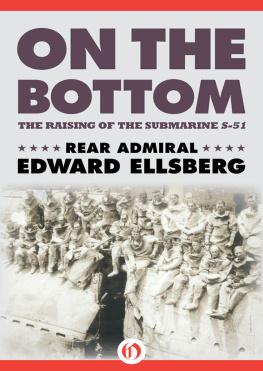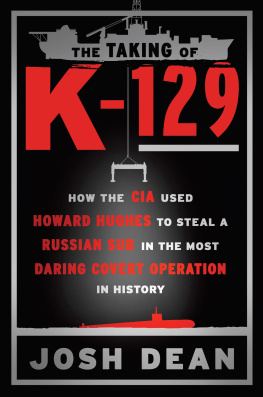
PROLOGUE

March 7
I hate keeping tabs on the bastards, he thought. Crooked fuckers, all of them. You would think corruption wouldnt exist when you can pay everyone in your own country a salary. The task at hand always made George furious. Regardless, he pushed forward, as that was his temperament. He reflected that glamour was never written in the job description, but sifting through garbage seemed more like it should be a scene in a movie instead of an occupational requirement. The fact that it was taking place in the middle of his kitchen was repulsive to him. What George loved was order.
A glance at the calendar was followed by his thankful exhale. Three more months and his Florida retirement would be at hand. Life in Kuwait over the years had made him weary. At first, the assignment had been exciting and adventurous, but then the years had dragged on. George had plummeted into Kuwait life too quickly and too deep in the palace government to afford such luxuries as time away. He was always working. He had always been working. This thought often made him smirk when it came to figuring out how much paid time off he was owed. He hadnt even a clue as to his federal pay grade anymore.
These things will all get sorted out upon my return. I hope they have a good bookkeeper.
He had never met his latest handler face-to-face, but the manor possibly womanhad never let him down. He took comfort in that fact, as the end of his tenure was so close.
Hopefully for the last time he stood in his flat with the kitchen floor littered with refuse. He wondered if his other Central Intelligence Agency brethren investigated the trash bins as often as the company stipulated. Searching for everything and nothing at the same time. Then he dreamed of Florida.

Georges parents had immigrated to America from Iran in 1960. His father, discouraged by his countrys poor standard of living, had rejected his Islamic faith in favor of the better life in the United States. He flew into New York with his wife and never looked back.
The two expatriates scraped together enough money to open a dry-cleaning shop and made it a resounding success. To celebrate his good fortune, his father christened his first son George in honor of the first president of his newly adopted homeland. The name rolled off the tongue in a peculiar declaration, but it seemed to stick well enough: George Mohammed Akbar.
Dinner was where Georges father would wax poetic about the American dream. Hard work and a little sweat, he would say. In America, you can go anywhere, accomplish anything. You just have to be driven and educated.
His father loved being an American and did as much as he could to embrace his new life and forget his old. He immersed George in American culture, which included football in the winter and baseball in the summer, so George would achieve a deep sense of loyalty and patriotism. Politics in his home were conservative. His fathers views on the developing Middle East were more of a blanket statement.
They are all thieves, Georges father would remark. The tribesmen, the governors, the government, and the kings. Thieves, nothing more. May they perish by their corruption.
Georges positive link to his heritage came from his mother. She, too, enjoyed their prosperity, but often she would quietly take George aside and secretly school him in the traditions and culture of their origins. She felt it important that George keep ties with their past. Being the obedient son, George made sure that each parent received equal attention and his or her opinions equal study. It was a cultural cocktail for which he never thought hed have much use. Then came the day he graduated from the University of Colorado.
That spring morning, George was approached by some intriguing individuals who had been monitoring his progress as far back as grade school.
He was ripe for the picking, and the CIA knew when to harvest. With his background and knowledge of the Middle East and his proficiency with the native tongue, he could be placed in a small yet essential country in the middle of the cauldron known as the OPEC nations. The country: Kuwait. To George, it was the perfect opportunity to pay back the nation for the opportunities and prosperity his family had experienced. I owe America that much, he told himself.
The oil crunch in the seventies told the CIA that it was deficient with its presence in the Arabic states, and early in the Reagan years, it was trying to make up for the ignorance of the Carter administration. So they pushed George. Pushed him hard. Fieldwork normally would have been exempted for an agent of his inexperience except for the fact that the Middle East demanded more people to monitor the politics and changing culture of the Gulf. George happened to be the only one available with the correct background and language skills who could be covertly assigned within a reasonable amount of time. He looked the part. He knew the customs and the languageand he was bright, studious, and ambitious. After a year of grueling training to refine his knowledge of the Arabic language and culture (he was Persian, after all), he was on a plane to Kuwait, and everyone in the agency held their breath.
His placement was in the emirs palace as a low-level bureaucrat (a paper-pusher for the Administration of Communications). Nervously, he began to establish relationships with other departments in the government, praying that his inexperience wouldnt betray him. He wouldnt hear his birth name George for years from that moment forward.
He was largely ineffective for the first eighteen months, and the agency almost pulled him out. Then slowly he gained the confidence of the palace officials and began to get access to information. He worked unnoticed for the most part and was quietly promoted to new positions within his small branch of the Kuwait government. As the months yielded to years, he cultivated deep ties in all facets of Mideast life. Business, political, military, and civil were all parts of the bureaucracy that he came to know well. Drawing from those resources, he was able to channel information home so experts could compose a list of possible diplomatic actions to take to influence the emir and his government. The Middle East had the West in an oil death grip, and to suffocate the economy, all it had to do was squeeze.
He was a spy in the perfect place as far as the CIA was concerned, and George didnt mind, either. Kuwait really wasnt bad in his early years. They had adopted many Western themes, much to the dismay of their Arab neighbors. The Western influence was easily embraced in Kuwait, making it somewhat of an outsider among the OPEC nations. A peaceful country that was too small to be a military threat, yet harboring some of the richest oil reserves in the world. Oil gave Kuwait its influence.
George had been through it all. Every step of the way he tried to push the palace government into deeper ties with the United States. A few well-placed words here, a minor suggestion there, or an additional consul; at any point where he could have had an opinion, George gave one with the hope that it might have a positive effect on the relationship the United States had with its ally. George knew that he would never be asked directly for input, so he became acquaintances with the palace official staff; those with whom he spoke conversed with the decision-makers. By proxy, his views were sneaked into conversations and those conversations into dialogue with America. All he needed was to get them to the table. The rest was out of his hands. Over the objections of Kuwaits neighbors, Georges influence seemed to take root, and the United States enjoyed a solid relationship with the tiny nation. It became Americas window to the region, and George had the front-row seat. From Gulf War I to Gulf War II, George could recite and tie these events together better than any person on the planet. He had lived it, and now he wanted to go home.


